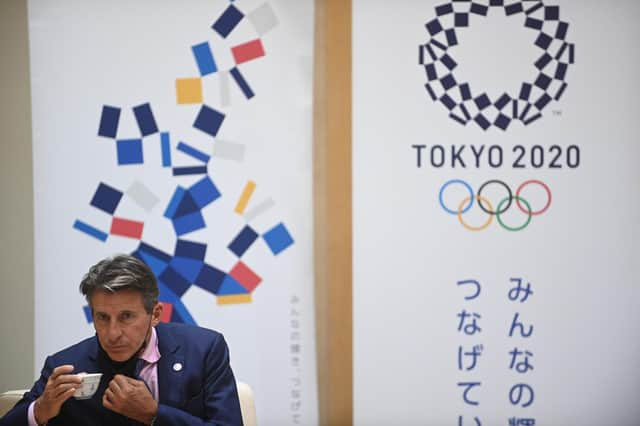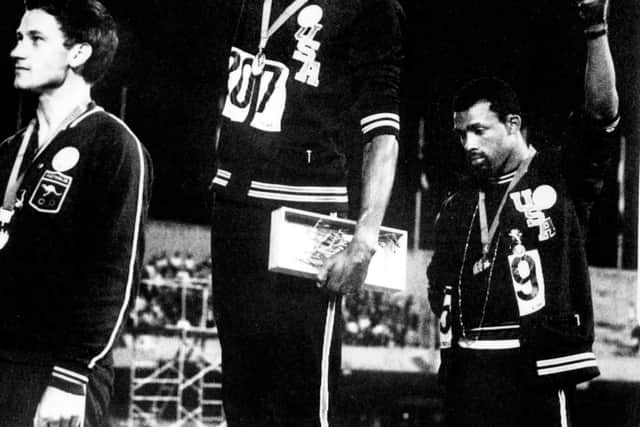Lord Coe supports athletes’ right to take a knee on Olympic podium


His comments appear to be in direct opposition to Rule 50 of the Olympic Charter, which says “no kind of demonstration or political, religious or racial propaganda is permitted in any Olympic sites, venues or other areas.”
“I’ve been very clear that if an athlete chooses to take the knee on a podium then I’m supportive of that,” Coe said, giving a boost to Black Lives Matter protests and other social- and racial-justice movements that are determined to use Tokyo as a stage.
Advertisement
Hide AdAdvertisement
Hide AdThe Tokyo Games had to be postponed to 2021 because of the coronavirus pandemic.


Coe is an International Olympic Committee member, a two-time Olympic champion, and the head of World Athletics, the governing body of track and field.
He was also in charge of the 2012 London Olympics.
“Athletes are a part of the world and they want to reflect the world they live in,” Coe said. “For me, that part is perfectly acceptable as long as it is done with respect - complete respect - for other competitors, which I think most athletes properly understand.”
The Olympic Games has a checkered history with political protest.
Most infamously, US sprinters Tommie Smith and John Carlos were expelled from the 1968 Games in Mexico City after each raised a black-gloved fist during the playing of the American national anthem as they stood on the podium after winning gold and bronze medals respectively in the 200 metres.
It was perceived as a “Black Power” salute although Smith said in his autobiography 30 years later that it was a “human rights” salute to raise awareness of racism in the US.
Avery Brundage, the then president of the International Olympic Committee (IOC), deemed it to be a political statement which clashed with the Olympic Games’ supposed apolitical stance.
On their return home Smith and Carlos were largely ostracised by the US sporting establishment and endured a lifetime of prejudice. Their protest is now considered one of the most iconic Olympic moments.
A message from the Editor:
Thank you for reading this story on our website. While I have your attention, I also have an important request to make of you.
With the coronavirus lockdown having a major impact on many of our advertisers - and consequently the revenue we receive - we are more reliant than ever on you taking out a digital subscription.
Subscribe to scotsman.com and enjoy unlimited access to Scottish news and information online and on our app. With a digital subscription, you can read more than 5 articles, see fewer ads, enjoy faster load times, and get access to exclusive newsletters and content. Visit https://www.scotsman.com/subscriptions now to sign up.
Our journalism costs money and we rely on advertising, print and digital revenues to help to support them. By supporting us, we are able to support you in providing trusted, fact-checked content for this website.
Joy Yates
Editorial Director
Comments
Want to join the conversation? Please or to comment on this article.